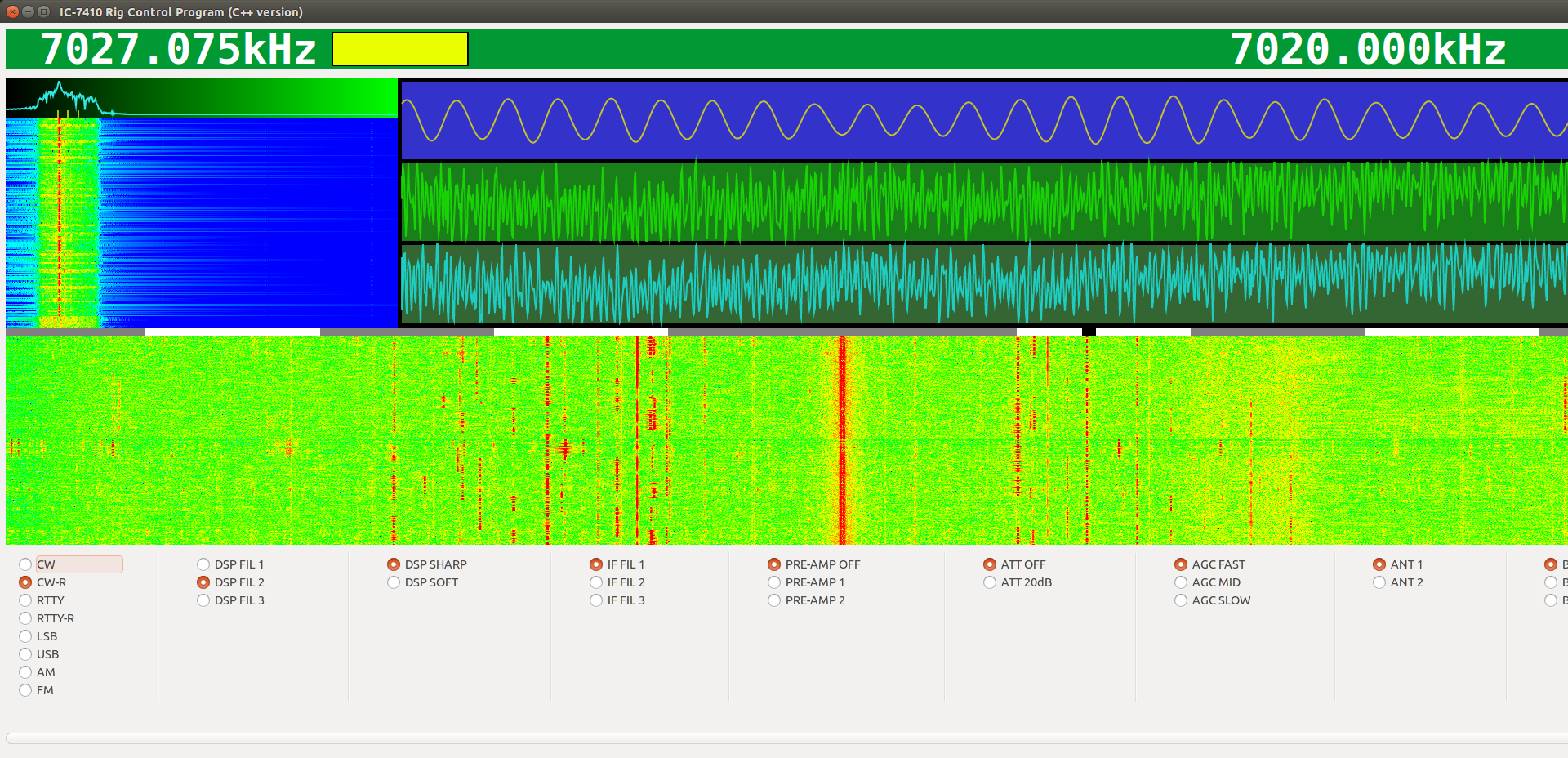This is another FAQ, which I did not know.
% sprigmm hw:2,0 hw:1,0
Here the device names hw:2,0 and hw:1,0 are for IC-7410 and Soft66LC4, respectively.
Usbsound *mydevice[2]; /* I have two usb sound devices */
mydevice[0] = new Usbsound_mono{argv[1]}; /* this is IC-7410 */
mydevice[1] = new Usbsound_iq {argv[2]}; /* this is Soft66LC4 */
The two usb sound devices behave similarly and and they are both derived from a base-class Usbsound.
class Usbsound_mono: public Usbsound {
public:
Usbsound_mono();
Usbsound_mono(char *s);
virtual ~Usbsound_mono();
};
class Usbsound_iq: public Usbsound {
public:
Usbsound_iq();
Usbsound_iq(char *s);
virtual ~Usbsound_iq();
};
The device name for each sound device, eg. hw:2,0, must be passed to the base-class constructor, Usbsound::Usbsound, for initialization.
Usbsound_mono::Usbsound_mono(char* s) : Usbsound(s) {
rate = 32000;
buffer_size = 32 * 1024;
period_size = 8 * 1024;
}
Usbsound_iq::Usbsound_iq(char* s) : Usbsound(s) {
rate = 48000;
buffer_size = 96 * 1024;
period_size = 2 * 1024;
}
The bit rate and other related parameters are specific for each device.

